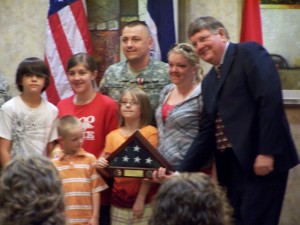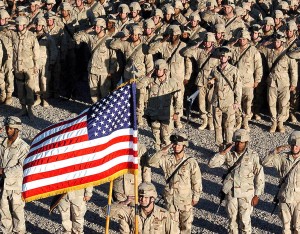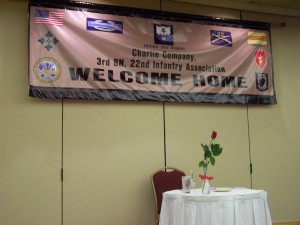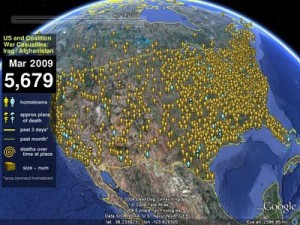Jul
29
Comparing TBI Injuries and PTSD
Filed Under TBI & PTSD | Comments Off on Comparing TBI Injuries and PTSD
 Last blog we focused on Traumatic Brain Injuries and how similar they can be to the symptoms of Post-traumatic Brain Disorders. To help demonstrate these similarities I have created a chart of Similarities and Differences.
Last blog we focused on Traumatic Brain Injuries and how similar they can be to the symptoms of Post-traumatic Brain Disorders. To help demonstrate these similarities I have created a chart of Similarities and Differences.
Much of the information is taken from our book, “Tears of a Warrior: A Family’s Story of Combat and Living with PTSD” and soon to be released new book by Laura Whittemore and Mary Ann Keatley, PhD, CCC, “Recovering from Mild Traumatic Brain Injury (MTBI): A Handbook of Hope for Our Military Warriors and Their Families”.
The Whittemore/Keatley book will give some helpful information on MTBIs including numerous questionnaires to assist individuals in recognizing if they need to seek medical services.
Note: Differences will be highlighted in Yellow (MTBIs) and Green (PTSD)
|
Mild Traumatic Brain Injury (MTBI) |
Post-traumatic Stress Disorder (PTSD)
|
|
Physical Symptoms · Headaches · Loss of balance · Vision problems · Dizziness · Loss of sex drive · Loss of energy · Easily fatigued · Sensitivity to light, sound, touch · Sleep disturbances |
Physical Symptoms · Headaches · Loss of sex drive · Loss of energy · Easily fatigued · Sleep disturbances · High blood pressure · Difficulty with digestion · Lower immune systems · High or lower levels of cortisol |
|
Emotional Symptoms · Depression · Mood swings, outbursts · Fearfulness · Apathy · Low motivation · Gullibility · Feeling easily overloaded · Anxiety, frustration · Difficulty managing emotions · Hyper vigilance, exaggerated startle response · Sense of helplessness · Loss of sense of self, low self-esteem · Nightmares · Anger |
Emotional Symptoms · Depression · Mood swings, outbursts · Fearfulness · Apathy · Low motivation · Feeling easily overloaded · Anxiety, frustration · Difficulty managing emotions · Hyper vigilance, exaggerated startle response · Sense of helplessness · Loss of sense of self, low self-esteem · Nightmares · Anger · Panic Attacks |
|
Cognitive Symptoms · Memory loss · Short attention span · Slowed thinking · Disorientation · Brain fatigue · Forgetfulness · Difficulty driving due to brain injury · Word finding and spelling difficulties · Impaired comprehension · Inability to organize thoughts · Inability to multitask · Inability to inhibit certain behaviors (i.e., excessive shopping, gambling…) · Difficulty with abstract thinking |
Cognitive Symptoms · Memory loss · Short attention span · Slowed thinking · Disorientation · Brain fatigue · Forgetfulness · Difficulty driving due to combat trauma… · Word finding and spelling difficulties · Impaired comprehension · Inability to organize thoughts · Inability to multitask · Inability to inhibit certain behaviors (i.e., excessive drinking, use of drugs both prescribed & illegal) · Difficulty with abstract thinking |
As you can readily see when you review the chart, the similarities are numerous which is why getting the most accurate diagnosis is critical. Treatment will differ by therapy options as well as prescribed medications. Improper identification can result in serious setbacks which may compound the individual’s ability to heal and recover from his/her injuries.
Jul
21
Traumatic Brain Injuries and PTSD
Filed Under TBI & PTSD | Comments Off on Traumatic Brain Injuries and PTSD
 It weighs barely three pounds, but it impacts everything that we do and much of who and what we are in life. The brain is a remarkable and sensitive body organ.
It weighs barely three pounds, but it impacts everything that we do and much of who and what we are in life. The brain is a remarkable and sensitive body organ.
This small, jelly-like form is made up of billions of neurons and their electrical/chemical connections that impact our emotions, our ability to remember new things, movement, and our interpretations of information from all the body senses (sight, sound, touch, taste…). When our brain is functioning well, we are able to do amazing things. Think about carrying out even the smallest tasks such as breathing, eating, watching a movie, or simply listening to music. The brain filters out unnecessary stimulus, thereby permitting us to transmit these basic, unconscious acts without much, if any effort. However, if we experience trauma to the brain, the entire system can be impacted in ways even the most knowledgeable neuroscientist doesn’t fully understand.
Now the simple tasks become much more complicated. The brain may not be able to filter out some things that allow us to focus on what is heard or seen. Or it may no longer be capable at breathing easily, or seeing accurately due to problems with concentration.
The notable piece of information to be aware of is the injury can be so cleverly disguised inside the brain that it can be difficult to diagnosis. A person does not have to pass out or get a knock on the noggin to acquire a brain injury. A huge blast, like those from an IED (improvised, explosive device), an unexpected fall, or rear-end car accident can jiggle the brain back and forth inside the skull causing internal bleeding and swelling. If and when this occurs, the normal functioning organ is no longer capable of doing what it once did so effortlessly. There is no such thing as a “perfect” brain. However, there is such a thing as a brain which has been damage.
Now, here’s the kicker in all of these particulars regarding the brain – the symptoms of Post-traumatic Stress Disorder and Mild Traumatic Brain injuries are very similar making identification of either problem tricky. Many individuals who have been involved in combat situations may have both PTSD and TBI to contend with as they cross the threshold to civilian life.
Therefore, it is critical that people who have either/both problems get medical services as soon as possible. The sooner the situation is attended to the better the results. Waiting only compounds the problem(s). If you suspect you have a problem, see a medical specialist and ask for a SPECT or an fMRI scan. SPECT scans must use machines that are at least a three – preferably four – angle apparatus. These give clearer pictures of the brain and what is happening when a person is doing particular tasks such as reading, thinking, or doing some specific task. CAT scans and regular MRIs don’t always pick up a slow bleed in the brain which is why SPECTS or fMRIs are needed for an accurate diagnosis.
Next blog, we will give some of the physical, emotional, and cognitive symptoms of TBIs and PTSD.
Jul
14
UNTIE THE YELLOW RIBBON
Filed Under WY National Guard | Comments Off on UNTIE THE YELLOW RIBBON
 As a child, I remembered a biblical passage – when someone died, the Lord waited to greet him or her into the Kingdom of Heaven. If the person had lived a worthwhile, meaningful life, the Lord would say, “Welcome home my good and faithful servant.”
As a child, I remembered a biblical passage – when someone died, the Lord waited to greet him or her into the Kingdom of Heaven. If the person had lived a worthwhile, meaningful life, the Lord would say, “Welcome home my good and faithful servant.”
On Saturday, we attended a Yellow Ribbon ceremony in Laramie, WY honoring ETT.2 National Guard Unit which had returned home after serving in Afghanistan from August 2008 until May 2009.
Of the fifteen individuals who deployed, only fourteen returned to receive their medals and celebrate with families and friends. One had paid the supreme sacrifice. Each member of the unit was called by name to accept the various medals from Governor Frudenthal and the National Guard’s top commanders. They listened to a special commendation read in their honor citing specific accomplishments while serving in Operation Enduring Freedom.
The speakers informed the gathering that in World War II, 12% of the population served in some capacity in the armed forces. Today, with an all volunteer military, only one third of one percent is serving. To make this clearer, the speaker noted, one would have to knock on doors of over 300 homes to finally get to one where someone is serving in the military. No wonder so many American’s have so little understanding of the sacrifice so few are giving to keep America and its citizens safe.
Presenters also noted some of the military’s achievements over the last many years while in Afghanistan:
- Helping create a healthier infrastructure such as hospitals, water filtering plants, schools, etc.
- Today, over six million children are now in school; two million are girls (girls have been forbidden by the Taliban to get an education)
- Over 6ooo kilometers of new roads have been constructed
- Healthcare is up and infant mortality is down
We were reminded how our troops are laying the groundwork for democracy in a country where running water is a rarity. Where accomplishing such a noble mission comes with a high price, both financial and human; a mission that proved again how a small group of focused, committed individuals can make a huge difference to enhance the lives of strangers in foreign lands.
It seemed to me, while listening to the speeches and special award presentations that it all could be summed up in one biblical sentence:
“Welcome home, my good and faithful soldier; your life has been meaningful and well spent.”
Let us hope we never forget the sacrifice and contributions our military men and women have made and are continuing to make to keep America free. For these fourteen families and communities, the yellow ribbons can now be untied, at least for now. And for one family, the yellow ribbon will forever be replaced with an empty chair at a table marking the high cost of service to our country.
Jul
10
You Can’t Tell a Hog What to Do
Filed Under Civilian life | Comments Off on You Can’t Tell a Hog What to Do
 The women gathered to talk about living with husbands who had served their country years ago during the Vietnam War. They were from throughout the United States and worked in a variety of careers. They were mothers, teachers, business owners, and even farmers.
The women gathered to talk about living with husbands who had served their country years ago during the Vietnam War. They were from throughout the United States and worked in a variety of careers. They were mothers, teachers, business owners, and even farmers.
During the morning session, we discussed the challenges of being in a relationship with a spouse who had experienced the trauma of combat – the killing, the living and the dying. Several of the veterans had been “tunnel rats”, those individuals whose job was to slither down the narrow passageways in search of Viet Cong. The tunnels allowed the enemy to pop-up out of nowhere and ambush American troops. Many believed the job of the tunnel rat was one of the most dangerous and scary assignments in Vietnam.
Several participants told stories of how the war did not remain overseas, but seemed to follow the vet back home.
Orders were still shouted, commands were given at all times of the day and night, and immediate compliance was expected. The deep battle scars of many warriors still remained.
I mentioned this phenomenon in our book, Tears of a Warrior. How my sons and I never quite understood the condition. In fact, we never fully realized that we walked a fine line between soldiers in combat and family. Our perceptions of how to respond to Dad were not the same as his. As one might imagine, such a scenario did not always produce a tranquil home environment.
Toward the end of the discussion, one lady explained to the group how it wasn’t her husband who had the most difficulty adjusting to home life, it was her.
You see, she explained, she ran the farm while he was away. She had to take care of the crops, fix the barn when it leaked, repair any broken appliances, and feed the animals, especially the pigs.
When her husband returned after being gone over a year, he kept asking why she did certain tasks in a manner unfamiliar to him. Her dilemma was to become more flexible in allowing him to reintegrate into the farm tasks, and not expect him to do things “her” way. Most of the farm duties were just fine after awhile, except one. It seemed the hogs weren’t terribly fond of the “new” farm hand and much preferred the lady as their primary feeder.
For any of you who aren’t familiar with farming and hog behavior, the only piece of information you need to know is that you don’t mess with a hungry, snorting hog.
Jul
1
Did You Know?
Filed Under Today's War | Comments Off on Did You Know?

On our last blog we wrote about the reunion of Charlie Company, 3rd Battalion, 22nd Infantry. The banquet’s guest speaker was COL Rainey of Fort Carson. In his speech he mentioned how important it was that the American people know and realize the many accomplishments of the troops serving in Iraq and Afghanistan. Since the media often reports the “terrible” stuff, he shared some of the more positive accomplishments of the current 3rd Battalion, 4th Infantry at Fort Carson. The following list is pretty impressive. More importantly, it balances the picture of this current war – a balance that shows the good along with the bad and ugly. Are you aware of some of the accomplishments of our soldiers?
- Killed and captured over 3700 terrorists and criminals
- Recovered over 2700 enemy weapons caches
- Coached, taught, and mentored Iraqi security forces
- Increased the police forces by over 12,000 policemen
- Transitioned 50,000 Sons of Iraq to government control
- Executed 2680 projects, improving the lives of Iraqis… sewer, water, electricity, agriculture, trash…
- Issued $14 million in micro grants, creating 7,000 jobs
- Executed 168 micro-generation projects, providing reliable electricity to tens of thousands
- Opened 405 schools, 55 clinics/hospitals, 18 swimming pools, and 49 new parks
- Did this with less combat power – 44 to 21 Battalions and the size or our battle space doubled
Did you know that because of these beneficial works, our American troops are striving hard to win the minds and hearts of a foreign people in a foreign land? A short verse in the Bible states, “By their works you will know them”. Maybe, when we leave the battle ground of Iraq, we will leave a legacy of good deeds and a future of greater hope. Maybe, war is more than killing and pain. Maybe, it is also a bit about small kindnesses and humane acts of decency. At the very least, when we read about the conflicts in Iraq and Afghanistan, we will remember the other part of the story.
Jun
22
A Reunion to Remember
Filed Under Vietnam Reunion | 1 Comment
 There are all kinds of reunions: high school, family, college, etc. Then there are those reunions that aren’t organized just for celebrations, but more importantly for remembrance, honoring fallen comrades, and healing. The biennium gathering of Vietnam Veterans who served in Charlie Company, 3rd Battalion, 22nd Infantry was one of these. This year it was held in Colorado Springs, CO, and we were invited to be part of the three day events. On Friday we visited Ft. Carson where the group was graciously granted access to several special base training sections including the simulation area where troops were able to practice their shooting skills. Another simulation building housed four look-alike Humvee Vehicles with machine guns, and other high tech equipment. Soldiers practice their driving skills and teamwork prior to deployment (or re-deployment) to assignments in Iraq and Afghanistan. These maneuvers proved far more challenging than any of us ever imagined. It made us realize how incredibly intelligent and efficient our current troops are when being trained for combat. Our young military guides were so enthusiastic about their mission, their work and their willingness to serve their country. Each had been deployed to Iraq or Afghanistan at least once. Many had experienced three deployments with a fourth coming soon. I couldn’t help envisioning the huge sacrifice they were making, as well as the commitment from spouses, children, and parents.
There are all kinds of reunions: high school, family, college, etc. Then there are those reunions that aren’t organized just for celebrations, but more importantly for remembrance, honoring fallen comrades, and healing. The biennium gathering of Vietnam Veterans who served in Charlie Company, 3rd Battalion, 22nd Infantry was one of these. This year it was held in Colorado Springs, CO, and we were invited to be part of the three day events. On Friday we visited Ft. Carson where the group was graciously granted access to several special base training sections including the simulation area where troops were able to practice their shooting skills. Another simulation building housed four look-alike Humvee Vehicles with machine guns, and other high tech equipment. Soldiers practice their driving skills and teamwork prior to deployment (or re-deployment) to assignments in Iraq and Afghanistan. These maneuvers proved far more challenging than any of us ever imagined. It made us realize how incredibly intelligent and efficient our current troops are when being trained for combat. Our young military guides were so enthusiastic about their mission, their work and their willingness to serve their country. Each had been deployed to Iraq or Afghanistan at least once. Many had experienced three deployments with a fourth coming soon. I couldn’t help envisioning the huge sacrifice they were making, as well as the commitment from spouses, children, and parents.
The reunion ended with a banquet on Saturday evening which was far from any I had ever experienced. Before dinner was served, the names of almost one hundred fallen and missing comrades were read by various members of the Regiment. Then, all eyes focused on a round, empty table that sat on the stage with a vase tied with a red ribbon holding a single red rose. A dress military hat sat next to the vase which made the entire scene a poignant reminder of those who would never attend any of these reunions. Since many of our customs and stories are mirrored through metaphors and symbols, I thought you might find the following explanation of the empty table meaningful.
The table is round – to show everlasting concern for our missing men.
The tablecloth is white – symbolizing the purity of their motives when answering the call to duty.
The single red rose – reminds us of the life of each of the missing, and the love ones and friends of these Americans who keep the faith, awaiting answers.
The vase is tied with a red ribbon – symbol of our continued determination to account for our missing.
A slice of lemon on the bread plate – is to remind us of the bitter fate of those captured and missing in a foreign land.
A pinch of salt – symbolizes the tears endured by those missing and their families who seek answers.
The Bible – represents the strength gained through faith to sustain those lost from our country, founded as one nation under God.
The glass is inverted – to symbolize their inability to share the evening’s toast.
The chair is empty – they are missing.
Sometime, perhaps 20 or 30 years from now, the warriors of today will be the old soldiers of tomorrow. Perhaps they will gather to remember, to heal, and to honor those who die in today’s war zones. And likely, they too will honor a single, empty, round table with an inverted glass and a red rose.
Jun
18
WARRIOR’S JOY
Filed Under Tears of Joy | 1 Comment
 The computer screen is dark, waiting for its colorful icons to magically appear when the master switch is ignited. Once up, we look for the message, just like in the movie, “You’ve Got Mail.” Mail from family, friends, and unknown friends – business mail, personal messages, Facebook, funny facts, the list is endless. What we await are comments regarding our book, Tears of a Warrior, and our website blogs. And there they are; messages telling us precious stories, battle experiences, challenges of living with PTSD, and concerns from parents, spouses, and children who live with a combat sufferer. One comment caught my eye. It was not meant as a criticism as the writer wanted to be sure to clarify. His exact words, So as you start your sequel to Tears of a Warrior just maybe you should take a look at the tears of joy. Not at all meant critically but in a fashion of hope. So Buddy, this particular blog is in honor of your comment.
The computer screen is dark, waiting for its colorful icons to magically appear when the master switch is ignited. Once up, we look for the message, just like in the movie, “You’ve Got Mail.” Mail from family, friends, and unknown friends – business mail, personal messages, Facebook, funny facts, the list is endless. What we await are comments regarding our book, Tears of a Warrior, and our website blogs. And there they are; messages telling us precious stories, battle experiences, challenges of living with PTSD, and concerns from parents, spouses, and children who live with a combat sufferer. One comment caught my eye. It was not meant as a criticism as the writer wanted to be sure to clarify. His exact words, So as you start your sequel to Tears of a Warrior just maybe you should take a look at the tears of joy. Not at all meant critically but in a fashion of hope. So Buddy, this particular blog is in honor of your comment.
Tears of a Warrior addresses the challenges of living with Post-Traumatic Stress Disorder, both as a sufferer and those who spend their lives supporting, observing, and being an intregal part of the journey. In any life there are tears. Tears of sorrow. Tears of regret. Tears of despair and hopelessness. And, just as significant, Tears of JOY. Below is a list of some of our Joyful Tears. As you read this blog, think about your life and smile, for like us, we are optimistic that you have experienced similar joyful events. Make your own list. Before you go to sleep and when you wake up each morning read over the list. You may find that in spite of the sadness, your life has also been blessed with many breathtaking, joyous moments.
Our Tears of Joy List:
- The birth of our sons
- Holding a tiny new life in your arms and smelling the sweetness of a true miracle
- The growing love of family and friends
- Watching a vibrant canvas of sky at sunrise and sunset
- Giggling over the crazy antics of a beloved pet
- Observing the changes of seasons, each with its spectacular scents and hues
- Celebrating holidays and birthdays with loved ones
- Eating your favorite ice cream on a hot summer day
- Knowing that we are constantly being watched over by someone/something greater than ourselves
- Watching a flag presentation and understanding the incredible pride of being an American.
This is our short list, as every day we are given so many special moments that humble and inspire us to be better, more grateful people. Yes Buddy, you are quite right, we must never fail to recognize and acknowledge all of our tears, especially our Tears of Joy. Perhaps, even those tears split in sorrow, carry their own reflection of Hope.
Jun
11
Advice for When a Soldier is Away
Filed Under Light A Candle | Comments Off on Advice for When a Soldier is Away
 What would you do if your spouse or loved one had to leave for a year or more? Not for a new job or long vacation, but to a place where danger abides in guns & rockets, roadside bombs, ambushes, and other mediums of war. Only a small percentage of today’s Americans have experienced this scenario. For those who do, each individual and family survives such an event differently. Knowing the availability of resources can provide comfort and reassurance at home during deployment. Emotional steadiness, from community support to financial security can impact the journey. The first counsel is to remember; no healthy man, woman, or child is an island. The better your posse (group of family & friends) the more likely you will get through the ordeal intact. If you hear a “boogieman in the basement”, know who to call for help. Noises frightened me too. That’s why I am in favor of having a dog as a trusted member of my posse. The four-legged helper does not have to be big, just has to have good listening skills and be yappi enough to provide a good “alarm system”. They also provide comfort during times of need. They can truly be your security blanket!
What would you do if your spouse or loved one had to leave for a year or more? Not for a new job or long vacation, but to a place where danger abides in guns & rockets, roadside bombs, ambushes, and other mediums of war. Only a small percentage of today’s Americans have experienced this scenario. For those who do, each individual and family survives such an event differently. Knowing the availability of resources can provide comfort and reassurance at home during deployment. Emotional steadiness, from community support to financial security can impact the journey. The first counsel is to remember; no healthy man, woman, or child is an island. The better your posse (group of family & friends) the more likely you will get through the ordeal intact. If you hear a “boogieman in the basement”, know who to call for help. Noises frightened me too. That’s why I am in favor of having a dog as a trusted member of my posse. The four-legged helper does not have to be big, just has to have good listening skills and be yappi enough to provide a good “alarm system”. They also provide comfort during times of need. They can truly be your security blanket!
Next, don’t isolate yourself. Do things you enjoy. Light scented candles for short meditations. Read good books. Go for long walks, take in a fun movie and have lunch with friends. Surround yourself with happy, but compassionate friends. Do something for someone else. It’s hard to focus on your personal problems when you are out there helping another person in need.
Call the military’s Family Support Group. They have resources such as cell phones, internet connections, communication advice, home repair, mental health therapist, etc.
Oh, and for those of you reading this blog who wants to do something for a military person or his/her family, I have listed a few suggestions below:
- Adopt a family of a military deployed person. Take over dinner. Baby-sit for a few hours. Take the spouse or parent to lunch or a movie. Anything that takes some of the pressure off of the ones remaining at home.
- Adopt a soldier. Almost every military person tells tales of how depressing and terrible it is to not get mail or care packages. While many are experiencing a sort of Christmas during mail day, many are left alone, not remembered, and feeling a bit abandoned. It is common knowledge that today’s military individuals do a lot of internet ordering just to get something in the mail when they are away. It’s quite simple, really. The person just wants to feel that his/her sacrifices are noticed and appreciated by someone, somewhere.
- When the soldier returns home, look for ways to support his/her reintegration into civilian life. Find out what he needs or wants. As one vet told us, “Sometimes people give us flowers when we really want chocolate.”
On a recent discussion with deployed family members, a mother wisely counseled us on what most vets and their families want from our country and community: Love, Support, Honor, and Respect………….that’s not much to ask for their sacrifices, don’t you agree?
Jun
4
Remembrance
Filed Under American Patriotism | Comments Off on Remembrance
 As this Memorial Day becomes a memory, I would like to share with you a profound graphic that uses Google Earth to honor the more than 5,700 American and Coalition servicemen and women that have lost their lives in Iraq and Afghanistan.
As this Memorial Day becomes a memory, I would like to share with you a profound graphic that uses Google Earth to honor the more than 5,700 American and Coalition servicemen and women that have lost their lives in Iraq and Afghanistan.
I recognize that this map is just a slice of the story associated with this war. The Iraqi and Afghan people have incurred substantial civilian losses; there are also U.S. and Coalition civilians, contractors, and reporters who have died as well. This visual focuses on the U.S. and Coalition military casualties, recognizing that the losses extend beyond what is depicted on the map.
Please take a look at this graphic, and reflect on the stories of heroism and sacrifice made across this nation and across the world. Although this map only shows the hometowns of the warriors who died, it’s important to remember that each of these servicemen and women have a rich story in between.
As we’re all reminded:
There’ll be two dates on your tombstone and all your friends will read them. But all that is going to matter is that little dash between them. Life is short at best and these valiant warriors have paid the supreme price.
Jun
2
Fears, Tears, and Funny Facts
Filed Under Tears | 4 Comments
 It is Saturday morning and my alarm clock wakes me up. I really want to sleep until my body’s time clock rouses me, but we are going to Cheyenne to watch, listen, and learn how parents, spouses, and community members are dealing with the recent deployment of their 5-state National Guard unit. From 9 in the morning until 2 in the afternoon we heard from spouses, parents, friends, and others who had experienced prior deployments or had a loved one who is now a part of this current operation. Each story was told from a different perspective, yet all voiced similar sentiments of fear, worry, and concern for how to deal with every day life without their loved ones. They talked of pride for the service and dedication the soldiers are giving for their country. Below are just a few of their narratives.
It is Saturday morning and my alarm clock wakes me up. I really want to sleep until my body’s time clock rouses me, but we are going to Cheyenne to watch, listen, and learn how parents, spouses, and community members are dealing with the recent deployment of their 5-state National Guard unit. From 9 in the morning until 2 in the afternoon we heard from spouses, parents, friends, and others who had experienced prior deployments or had a loved one who is now a part of this current operation. Each story was told from a different perspective, yet all voiced similar sentiments of fear, worry, and concern for how to deal with every day life without their loved ones. They talked of pride for the service and dedication the soldiers are giving for their country. Below are just a few of their narratives.
- The Brigadier General gave the introduction of his own earlier deployment and how it made him more appreciative for the beauty of the common landscape of Wyoming. The freshness of new grasses in a meadow. The smell of wildflowers and warm sunshine instead of Iraq’s dust and withering heat. And, as he was driving to the meeting, he had the special gift of seeing a mother antelope give birth to its newborn fawn. From the dreadfulness of the combat zone to the miracle of new life, one is constantly reminded of the beauty of America.
- A husband and wife chatted about their experiences. The discovery of hidden strengths, the challenges of fixing leaky pipes and broken cars, and the difficulty of not being able to see and hold one another at the beginning and end of each day. Other funny facts they shared:
- How the military takes care of every need and item in your life including your relationships, “If we wanted you to have a wife, we would have issued you one.”
- MRE which is the acronym for “Meals Ready to Eat” to what he thought they really are – “Meals Refusing to Exit”
- Another spouse spoke of how she now refuses to attend any “good-bye” ceremonies. She has done this before and learned that, for her, it was far better to say her farewells at home. Watching the panic of small children holding onto their parent’s pant legs and crying, “Please don’t leave me”. Wives weeping, sad faces, the combat exit…all were a bit too much. She gave herself and others permission to make choices that preserve their fragile emotional state.
- One young women told of how, shortly after she learned that her husband would be deployed for a second time, had a devastating stroke. She is working her way back to health with the support of family and friends. It is important that her husband not worry about how she is healing while he needs to be focused on completing and surviving his mission in Iraq and Kuwait.
Yes, the stories and the story tellers are linked together by their common situation, a situation of having a loved one living in a combat zone thousands of miles from home. A situation which requires those left at home to be braver, stronger, more responsible and independent than ever before. It seemed as if a mantra could be heard throughout the day: “I’m handling it – whatever “it” is or will be.” And they are not alone, for going through the next year will be easier with a solid base of friends, families, supportive communities, and the attentive resources from the military.

